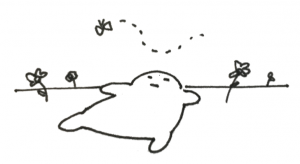 As UMKC’s Faculty Ombudsperson, I am a neutral party who assists faculty visitors decide how they might best resolve their workplace issues. One of my main tasks is to help generate options that might resolve a visitor’s situation. Then I encourage visitors to evaluate all options in terms of their risks and benefits. Visitors decide for themselves which is best.
As UMKC’s Faculty Ombudsperson, I am a neutral party who assists faculty visitors decide how they might best resolve their workplace issues. One of my main tasks is to help generate options that might resolve a visitor’s situation. Then I encourage visitors to evaluate all options in terms of their risks and benefits. Visitors decide for themselves which is best.
Often visitors come with their own ideas for action, such as appealing to someone in the campus hierarchy, filing a grievance, or even looking for a new position in another institution. I am usually able to add other options to their list, such as referencing a policy or practice, suggesting another person who might be able to help, or coaching them to confront the situation directly in safety and civility.
I also usually offer an option that makes some visitors raise their eyebrows: To “do nothing.” By this, I mean simply accepting things as they are.
Like all options, the risks and benefits of doing nothing have to be considered. A risk is that a highly charged situation may continue to take too much of an emotional toll. A benefit is that doing nothing may be – in some ways – the easiest course of action. If the situation is embedded within a structure or culture, it might be difficult or impossible to change. It could be that as the organization evolves, the situation will resolve itself. Thus there may be value in coming to an acceptance that “what is, is.”
Deciding to accept a bad situation sometimes means reorienting oneself towards other things, such as spending more time with family and friends, focusing on hobbies or outside activities, or doubling-down on stress reduction exercises to create emotional distance from the problem.
Some visitors actually decide doing nothing is the best course of action. In most cases, they choose other, more defined options. But just the consideration of doing nothing provides perspective on the amount of time, emotional upheaval, or even career risk other options represent.
The bottom line: Our bad workplace situations are rarely easy to resolve. Considering all the options, including to “do nothing,” is the first step in moving forward.








